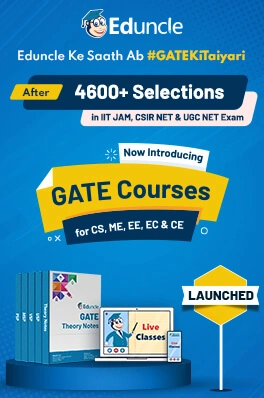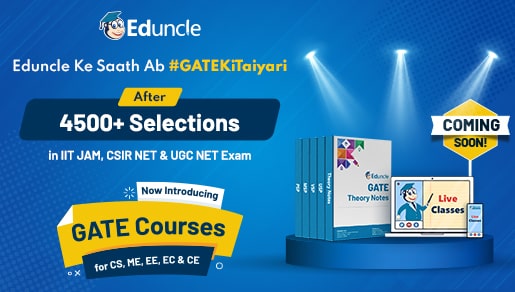Time management is very much important in IIT JAM. The eduncle test series for IIT JAM Mathematical Statistics helped me a lot in this portion. I am very thankful to the test series I bought from eduncle.
Nilanjan Bhowmick AIR 3, CSIR NET (Earth Science)Posts by Lavi Arora
- 0 Likes
- 1 Comments
- 0 Shares
-
![comment-profile-img]() The major philosophies of education can be broken down into three main types: teacher-centered philosophies, student-centered philosophies, and society-centered philosophies. These include Essentialism, Perennialism, Progressivism, Social Reconstructionism, Existentialism, Behaviorism, Constructivism, Conservatism, and Humanism.Essentialism and Perennialism are the two types of teacher-centered philosophies of education. Essentialism is currently the leading style of public education in the United States. It is the teaching of basic skills that have been proven over time to be needed in society. Perennialism focuses on the teaching of great works.There are three types of student-centered philosophies of education. Progressivism focuses on developing the student's moral compass. Humanism is about fostering each student to his or her fullest potential. Constructivism focuses on using education to shape a student's world view.There are two types of socially-centered philosophies of education. Reconstructionism is the perspective that education is the means to solve social problems. Behaviorism focuses on cultivating behaviors that are beneficial to society.
The major philosophies of education can be broken down into three main types: teacher-centered philosophies, student-centered philosophies, and society-centered philosophies. These include Essentialism, Perennialism, Progressivism, Social Reconstructionism, Existentialism, Behaviorism, Constructivism, Conservatism, and Humanism.Essentialism and Perennialism are the two types of teacher-centered philosophies of education. Essentialism is currently the leading style of public education in the United States. It is the teaching of basic skills that have been proven over time to be needed in society. Perennialism focuses on the teaching of great works.There are three types of student-centered philosophies of education. Progressivism focuses on developing the student's moral compass. Humanism is about fostering each student to his or her fullest potential. Constructivism focuses on using education to shape a student's world view.There are two types of socially-centered philosophies of education. Reconstructionism is the perspective that education is the means to solve social problems. Behaviorism focuses on cultivating behaviors that are beneficial to society.- Likes(0)
- 0 Likes
- 1 Comments
- 0 Shares
-
![comment-profile-img]()
It is the method of evaluation performed at the end of a unit that allows a teacher to measure a student's understanding, typically against standardized criteria. The purpose of summative assessment is to gauge students' comprehension of the material presented at the end of a particular unit of work, and is often measured with a grade or percentage, depending on the subject.
T

Lavi
Ask, Learn & Lead It- 0 Likes
- 1 Comments
- 0 Shares
-
![comment-profile-img]()
The 5 E's is an instructional model based on the constructivist approach to learning, which says that learners build or construct new ideas on top of their old ideas. Each of the 5 E's describes a phase of learning, and each phase begins with the letter "E": Engage, Explore, Explain, Elaborate, and Evaluate. Teachers who can incorporate instructional models like the 5E Model into their classrooms help students build a strong foundation of knowledge through active participation.
T
- 0 Likes
- 1 Comments
- 0 Shares
-
![comment-profile-img]()
Emotional intelligence (EI), emotional leadership (EL), emotional quotient (EQ) and emotional intelligence quotient (EIQ), is the capability of individuals to recognize their own emotions and those of others, discern between different feelings and label them appropriately, use emotional information to guide thinking and behavior, and manage and/or adjust emotions to adapt to environments or achieve one's goal(s).
T
- 0 Likes
- 1 Comments
- 0 Shares
-
![comment-profile-img]()
The system devised by Charles Galloway at Ohio State University focuses on the nonverbal behavior of the teacher. Observation, requiring no special equipment, may be made by one person in a live situation. The system was designed to be used with the categories, time intervals, and ground rules of the original Flanders system.
T
- 0 Likes
- 1 Comments
- 0 Shares
-
![comment-profile-img]()
Epistemological refers to the ways to acquire the knowledge (Alan Bryman, 2001). The knowledge those are acceptable in certain paradigms. Furthermore, in critical theory, practical issues can construct the knowledge. Epistemology is the theory of knowledge, the study of the nature, sources and limitations of knowledge.
T
- 0 Likes
- 1 Comments
- 0 Shares
-
![comment-profile-img]()
The mission of the Journal of Teacher Education, the flagship journal of AACTE, is to serve as a research forum for a diverse group of scholars invested in the preparation and continued support of teachers who can have a significant voice in discussions and decision-making. Issues covered include preparing teachers to effectively address the needs of marginalized youth; program design and impact; local and national policy; and accountability. Its main aim is to provide reflective space for quality learning.
T


























